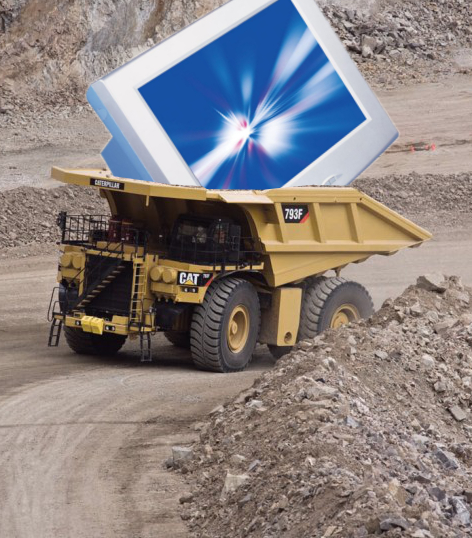Miner buys supercomputer for new age of exploration
 One of Australia’s major energy companies has put up half a million dollars for its own supercomputer to crunch data from oil and gas exploration.
One of Australia’s major energy companies has put up half a million dollars for its own supercomputer to crunch data from oil and gas exploration.
Woodside Energy has invested an initial $500,000 for a machine boasting 0.118 Petaflops of processing power, which could be scaled-up to a full Petaflop-scale supercomputer in the next few years.
The big rig has been appropriately named ‘Moordiup’, an Aboriginal word meaning ‘fast’. Packed with 880 processors, ‘fast’ may be something of an understatement.
A spokesperson from Woodside says Moordiup will be used for a geophysics challenge known as ‘full wave inversion’ (FWI).
FWI uses 3D seismic data to accurately model the location of oil and gas reserves.
“The idea is for us to test FWI on a small scale and also to test the hardware with the intention that if we can get all these things to work we will expand Moordiup to a Petaflop-scale machine which we think we'll need for a production environment by about 2015,” said Woodside subsurface technology chief scientist, Tom Ridsdill-Smith.
Moordiup’s specifications show an incredible leap above the abilities of any home-use computer.
“It is an Intel system with 110 Xeon E5-2670 processors [880 cores in total],” a Woodside spokesperson said.
“We are currently in the process of adding accelerator hardware to each of the 55 nodes, most likely NVIDIA Tesla GPUs [graphics processing units].”
The company is not waiting for delivery of its incredible new technological helper, reaching-out to universities and other groups to test FWI in the interim.
Woodside has also sponsored a professorship at the University of Western Australia to involve post-doctoral resources on its projects. The company says geophysicist Tenice Nangoo has been brought in to rein Moordiup's computing power for FWI until the end of this year.
A true Petaflop computer, which Moordiup may one day grow into, performs over one quadrillion operations per second. The current champion supercomputer is China's Tianhe-2, benchmarked at 33.86 Petaflops.








 Print
Print